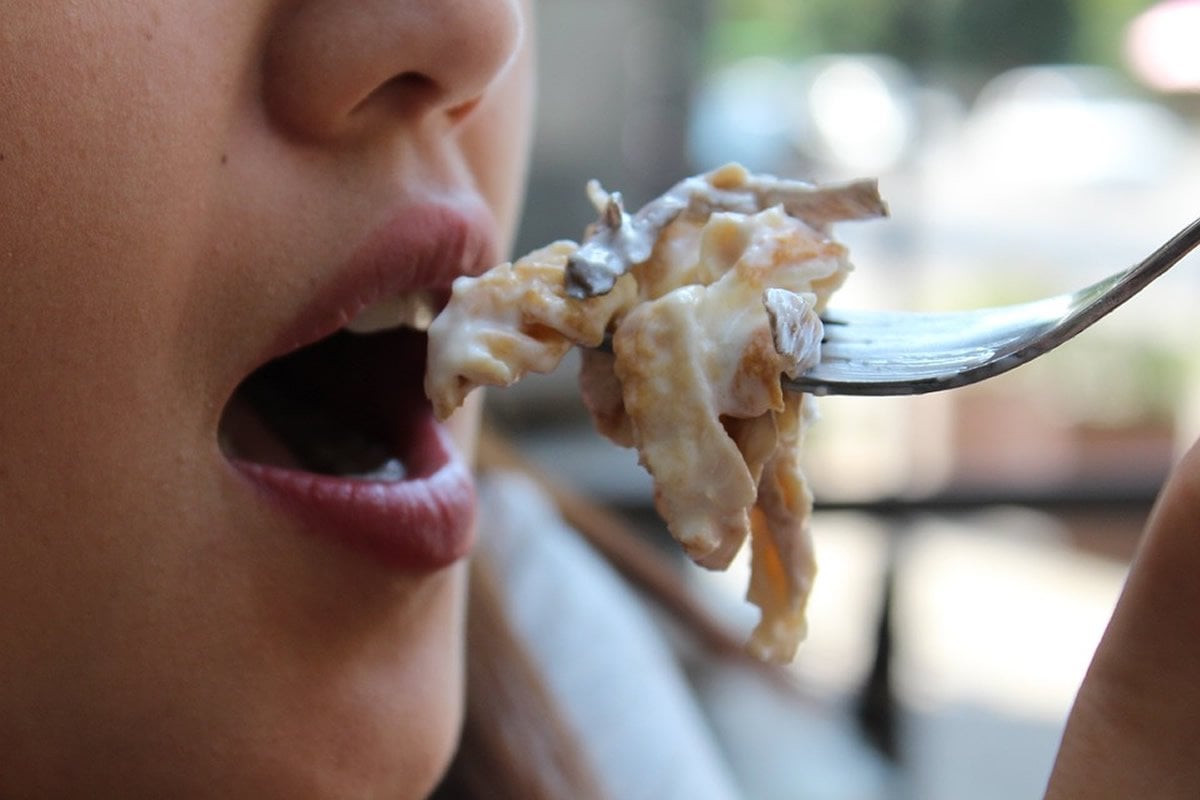Summary: Women who date for a free meal and without romantic interest in their dinner partners are more likely to exhibit ‘dark triad’ personality traits. Dark triad traits, including narcissism, psychopathy and Machiavellianism, are associated with negative behaviors, such as exploitative behaviors and deception.
Source: Society for Personality and Social Psychology
When it comes to getting a date, there’s any number of ways people can present themselves and their interests. One of the newer phenomena is a “foodie call” where a person sets up a date with someone they are not romantically interested in, for the purpose of getting a free meal. New research finds that 23 – 33% of women in an online study say they’ve engaged in a “foodie call.”
Upon further analysis, the social and personality psychology researchers found that women who scored high on the “dark triad” of personality traits (i.e., psychopathy, Machiavellianism, narcissism), as well as expressed traditional gender role beliefs, were most likely to engage in a foodie call and find it acceptable.
The research, by Brian Collisson, Jennifer Howell, and Trista Harig of Azusa Pacific University and UC Merced, appears in the journal Social Psychological and Personality Science.
In the first study, 820 women were recruited, with 40% reporting they were single, 33% married, and 27% saying they were in a committed relationship but not married. Out of them, 85% said they were heterosexual, and they were the focus of this study.
The women answered a series of questions that measured their personality traits, beliefs about gender roles, and their foodie call history. They were also asked if they thought a foodie call was socially acceptable.

23% of women in this first group revealed they’d engaged in a foodie call. Most did so occasionally or rarely. Although women who had engaged in a foodie call believed it was more acceptable, most women believed foodie calls were extremely to moderately unacceptable.
The second study analyzed a similar set of questions of 357 heterosexual women and found 33% had engaged in a foodie call. It is important to note, however, that neither of these studies recruited representative samples of women, so we cannot know if these percentages are accurate for women in general.
For both groups, those that engaged in foodie calls scored higher in the “dark triad” personality traits.
“Several dark traits have been linked to deceptive and exploitative behavior in romantic relationships, such as one-night stands, faking an orgasm, or sending unsolicited sexual pictures,” says Collisson.
Collisson and Harig said they became interested in the subject of foodie calls after reading about the phenomenon in the news.
As for how many foodies calls might be occurring in the United States, Collisson says that can’t be inferred from the current research.
“They could be more prevalent, for instance, if women lied or misremembered their foodie calls to maintain a positive view of their dating history,” says Collisson.
The researchers also note that foodie calls could occur in many types of relationships, and could be perpetrated by all genders.
Source:
Society for Personality and Social Psychology
Media Contacts:
Annie Drinkard – Society for Personality and Social Psychology
Image Source:
The image is in the public domain.
Original Research: Closed access
“Foodie Calls: When Women Date Men for a Free Meal (Rather Than a Relationship)”. Brian Collisson, Jennifer L. Howell, Trista Harig.
Social Psychological and Personality Science. doi:10.1177/1948550619856308
Abstract
Foodie Calls: When Women Date Men for a Free Meal (Rather Than a Relationship)
A foodie call occurs when a person, despite a lack of romantic attraction to a suitor, chooses to go on a date to receive a free meal. The present study examines predictors of a deceptive form of the foodie call in the context of male–female dates: when a woman purposefully misrepresents her romantic interest in a man to dine at his expense. In two studies, we surveyed women regarding their foodie call behavior, dark triad personality traits, traditional gender role beliefs, and online dating history. We found 23–33% of women surveyed had engaged in a foodie call. In Study 1, dark triad and traditional gender role beliefs significantly predicted previous foodie call behavior and its perceived acceptability. Study 2 employed fuller measures and suggested again that dark triad traits predicted foodie calls and their perceived acceptability.






